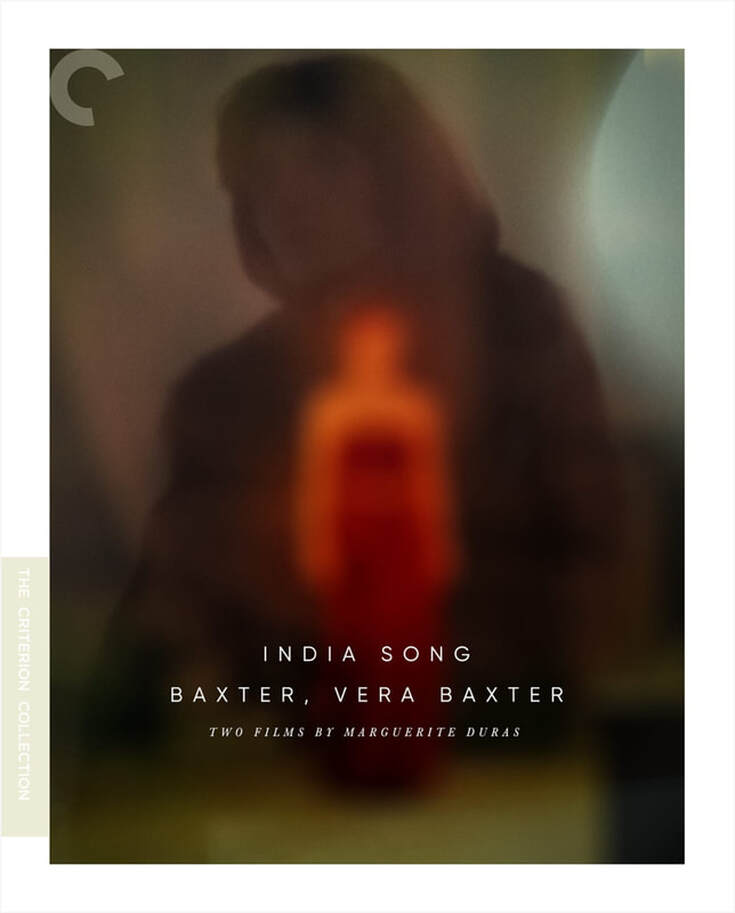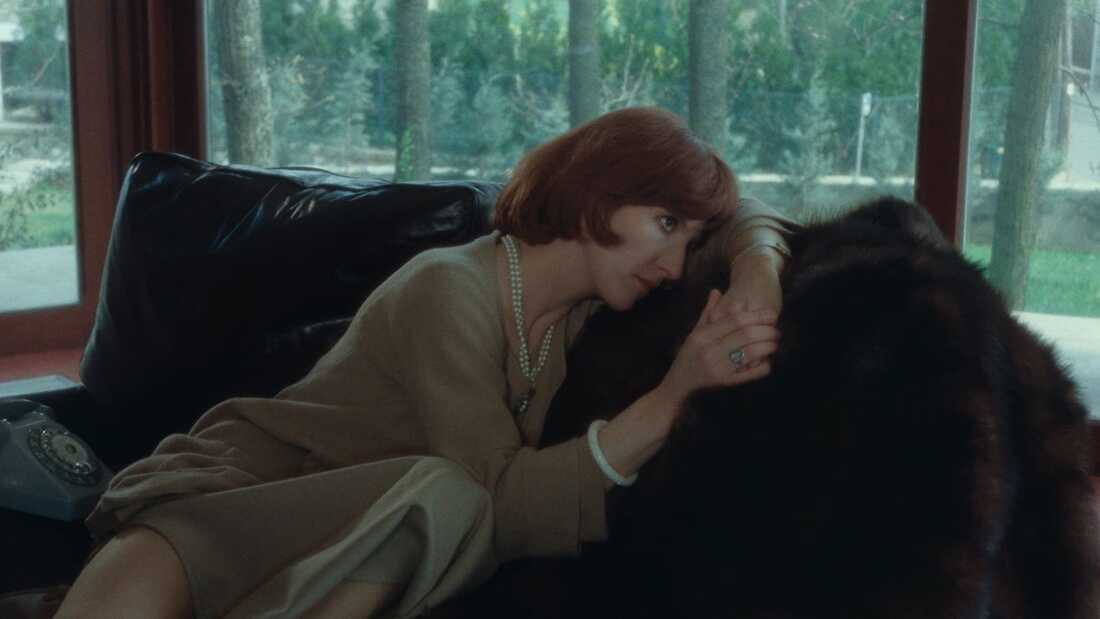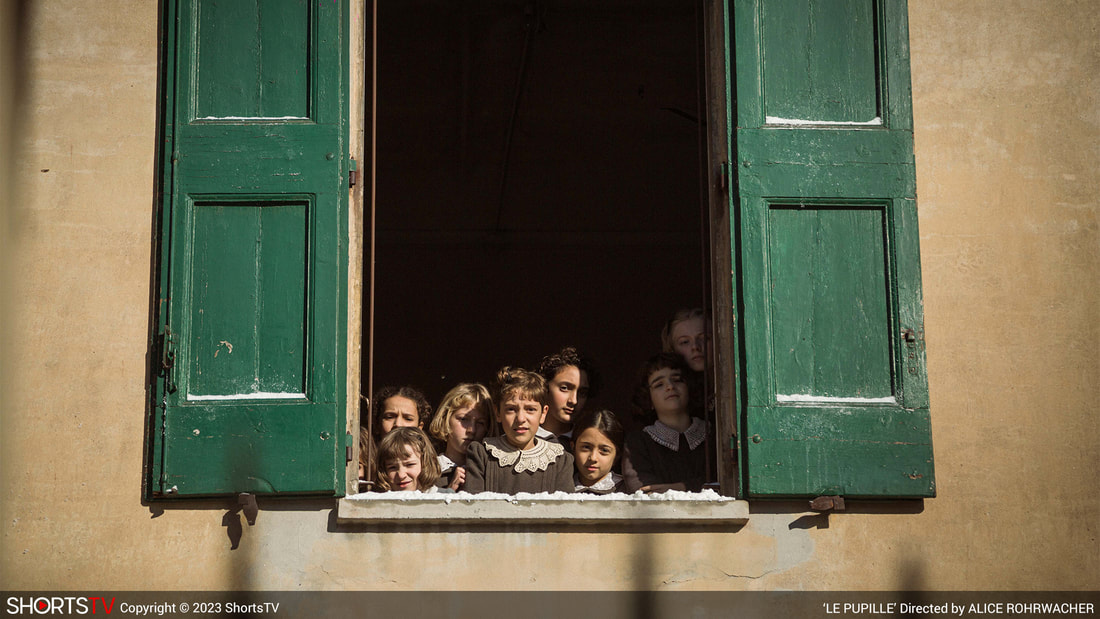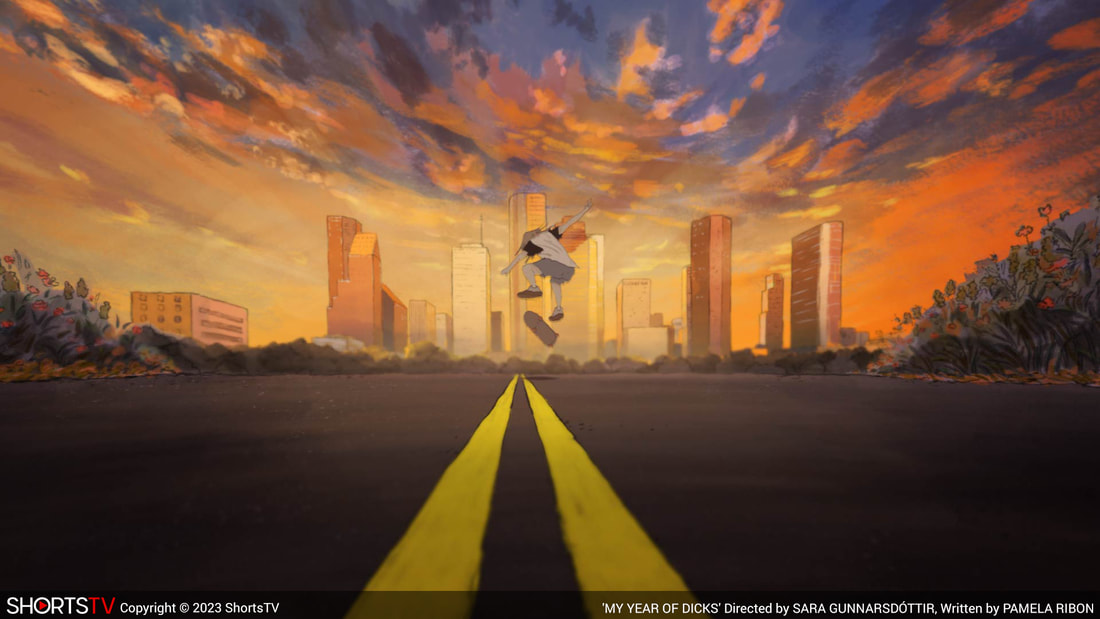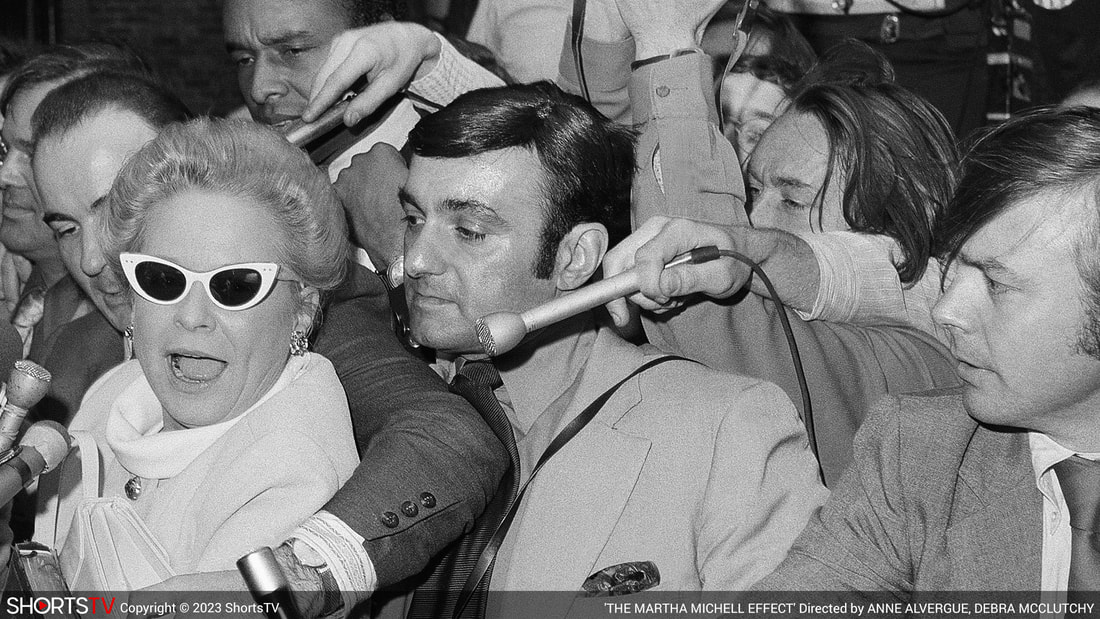|
By Sean Boelman
French filmmaker Marguerite Duras’s filmography has been a mainstay on The Criterion Channel for a while now, so it was only a matter of time before her films were added to the physical collection. Two Films by Marguerite Duras is a two-disc set that collectors will want to add to their shelves, as it combines two important works of woman-helmed experimental cinema.
For those unfamiliar with Duras’s style, it’s known for being very experimental — with gorgeous visuals, interesting uses of sound, and lots of poeticism in its dialogue. She is arguably better known for her literature and for writing the French New Wave classic Hiroshima Mon Amour, but cinephiles are certainly familiar with her directorial efforts. The set is primarily defined by its inclusion of Duras’s visually splendid period piece, India Song, following the wife of a French diplomat in 1930s India as she drifts through her unsatisfying life. It’s long and talky — and perhaps even outstays its welcome — but it’s an impressive feature nonetheless. As the “Side B,” if you will, the Two Films by Marguerite Duras set includes Baxter, Vera Baxter, which is arguably the superior of the duo despite getting second billing. Like India Song, this film is quite visually stunning despite its restrained use of setting. The use of music in this one also stands out, with a catchy island tune recurring throughout.
It makes sense why these were the two films picked for the set — beyond being Duras’s two most recognizable films behind the camera: they feel very thematically connected. Both are about women stuck in unhappy marriages and having affairs, but the approach that Duras takes is quietly internalistic rather than the melodramatic love triangles we are used to seeing in the genre.
Both films also boast impressive leading performances. Delphine Seyrig — whom cinephiles may know as the eponymous protagonist from Jeanne Dielman, 23 quai du commerce, 1080 Bruxelles — is just tremendous as the discontent diplomat’s wife in India Song. She also has a supporting turn in Baxter, Vera Baxter, but the more inspiring performance in that film is from Claudine Gabay as the eponymous character. This set has what might be one of the most interesting bonus features on any Criterion Collection edition to date: a newly-discovered alternate English-language audio track to India Song that was directed by Duras herself. Although dubbing is usually something to stay away from, it’s interesting to see that option on a set like this and may be worth considering checking out. The work of Marguerite Duras is an acquired and very particular taste, but Two Films by Marguerite Duras is a worthy addition to the collection. Both films mean a lot to the world of experimental cinema, and it’s nice to see them getting their time in the spotlight. The Criterion Collection edition of Two Films by Marguerite Duras is now available.
0 Comments
By Sean Boelman
The short film categories at the Oscars tend to be exciting for two reasons: they are a chance to recognize some of the most exciting new talents in the field, and they tend to be some of the more unpredictable categories to guess. Every year, ShortsTV puts out showcases of all three categories — Live Action, Animation, and Documentary — so that audiences get the opportunity to see the nominees.
This year, your time is probably best spent catching the Animation category, as it is the most consistent of the three. However, we at disappointment media have gotten the chance to watch all fifteen nominees, and we wanted to share our rankings by category. What do we have pegged to win? Le Pupille, The Boy, The Mole, The Fox and The Horse, and The Elephant Whisperers — however, as you will see, these aren’t necessarily what we hope will win in their respective categories Live Action
5. Night Ride
Many times, the Live Action short category contains a film whose heart is undeniably in the right place even if the execution does not allow it to live up to its potential. Night Ride is that short this year, following a woman with dwarfism who hijacks a trolley, only to have to stand up for a passenger being harassed onboard. The film attempts to juggle the weighty themes of prejudice and discrimination while also being a goofy comedy, and the result is supremely frustrating and off-putting. 4. An Irish Goodbye Oscar voters might resonate with An Irish Goodbye, a saccharine and sentimental short about a man with Down syndrome and his older brother who decide to complete their recently deceased mothers’ bucket list. It’s entirely harmless, and offers a few laughs, but unfortunately, it doesn’t have enough momentum to sustain even its twenty-three-minute runtime. While the premise is there, it’s not expanded upon in a satisfying way and at a certain point, the bucket list begins to feel like a montage. 3. Ivalu Ivalu is a beautifully-shot short, and it features some absolutely wonderful visual symbolism. That being said, Anders Walter and Pipaluk K. Jørgensen are directing the hell out of a script that doesn’t have a ton of depth. The attempts at poeticism aren’t as meaningful or resonant as one would hope, and the short film format doesn’t lend itself to the character development that would have been needed to make this story work as well as it deserved. It’s still fine, but it can’t escape the feeling of seeming to be a proof-of-concept. 2. The Red Suitcase The Red Suitcase thankfully avoids the trauma porn trappings that typically drive any short film dealing with a timely topic like this. Still, this story of a young woman trying to escape oppression isn’t as compelling as it should have been — likely because it feels somewhat incomplete. The first ten minutes provide the set-up, and the remainder is a pretty riveting thriller, but this still feels like it is only the beginning to what should have been a longer short or feature. Who knows? Maybe its recognition in this category will lead the filmmakers to expand it. 1. Le Pupille I don’t usually like to root for films made by established and already acclaimed filmmakers in the short film categories — as they are some of the few spaces at the Oscars that tend to discover talent — but Alice Rohrwacher’s Le Pupille stands out so far above the rest of the pack that it’s hard to deny its charm. An adorable little Christmas fable, this short excels in its production value, score, and ensemble of gifted young performers. Honoring it may not be taking advantage of the opportunity to recognize an exciting up-and-coming voice, but it’s clearly the best in the category. Animation
5. The Flying Sailor
The Flying Sailor is based on a bizarre and entertaining true story, and has playful storybook-like animation, but as soon as the credits roll, viewers will be left to ask, “That’s it?” It’s not a poorly-made short, but the filmmakers are clearly trying to make a film out of emotions that simply aren’t there. The attempts to go metaphorical and philosophical ring hollow, the end result being a short that is rather unimpressive. 4. An Ostrich Told Me the World Is Fake and I Think I Believe It Beyond having the (arguably) most absurd title of this year’s nominees, An Ostrich Told Me the World is Fake and I Think I Believe It is probably the most ambitious of the animated shorts, and it deserved its praise for that. The claymation is certainly creative and well-done, and it’s a premise that gives viewers a decent little chuckle. Unfortunately, the meta humor in this film isn’t able to be fully explored in the eleven-minute runtime, meaning that the film ends up feeling zany just for the hell of it, like a lite version of Charlie Kaufman. 3. Ice Merchants Visual, non-linguistic storytelling and animation are two techniques that seem like they were made for each other, but the non-linguistic animated shorts nominated for the Oscar tend to be pretty hit-or-miss. Thankfully, João Gonzalez’s Ice Merchants is more hit than miss, but it does leave something to be desired. This story of an exciting and unusual father-son relationship is gorgeously animated, but what it is missing is the personal touch to make it feel emotionally resonant. 2. The Boy, The Mole, The Fox and the Horse Since there is no Disney/Pixar nominee this year, the Apple TV+/BBC co-production The Boy, The Mole, The Fox and the Horse is this year’s “mainstream” pick, and it’s predictably quite good. Based on the children’s book of the same name, this is an adorable little fable boasting a superb (but small) voice cast of Tom Hollander, Idris Elba, Gabriel Byrne, and newcomer Jude Coward Nicoll. Since the Animated Short Oscar tends to go to something less edgy and more kid-friendly, this seems to be the clear frontrunner at this point — and it would be hard to be upset if it wins. 1. My Year of Dicks Many people might be rooting for My Year of Dicks just so that they can hear the announcer giggle when they read its name as a nominee and potential winner, but it’s also the best of the bunch by a large margin. Directed by one of the animators from the acclaimed coming-of-age hybrid feature Diary of a Teenage Girl, the film tells the extremely personal, incredibly awkward story of the writer’s quest to lose her virginity. It’s hilarious, poignant, and best of all — ambitiously animated with a style that has plenty of variety. Documentary
5. Stranger at the Gate
Stranger at the Gate is quite possibly the worst film to have ever been nominated for an Academy Award, across all categories. The film follows a U.S. Marine who finds redemption after canceling his plans to attack a small-town American mosque. You can tell that this film’s heart is in the right place, and compassion and empathy are great and all, but do we really need to be teaching it by making a hate crimer empathetic? Sure, maybe he didn’t *actually* commit the crime, but the film’s perspective is still unquestionably broken. 4. How Do You Measure a Year? Jay Rosenblatt got nominated in this category last year with his controversial short When We Were Bullies. While his contender this year, How Do You Measure a Year?, is certainly less divisive, it’s also far less thought-provoking. A video diary following Rosenblatt’s daughter as she grows up by showcasing a few minutes of her life on each of her birthdays, this film simply isn’t particularly interesting. Rosenblatt fails to engage with the potential themes in any remotely interesting way, resulting in a film that feels overwhelmingly shallow. 3. Haulout Working in Haulout’s favor is that it is certainly the most visually stunning documentary of the bunch. Unfortunately, that’s pretty much all the film has on its side. The film follows a scientist who is waiting to observe an annual walrus migration event. There is very little else to the film. It’s verité to the extreme, with almost no dialogue or narrative — we’re just observing this guy observe the walruses. The final captions end the film with an urgent environmentalist call to action, but it would have been nice to see this more evenly spread throughout the entire runtime. 2. The Elephant Whisperers The Elephant Whisperers is another visually impressive documentary, and it gets the slight edge over Haulout because there is more substance to be found here. That said, the film still doesn’t seem to do everything it needed to do in its forty-minute runtime. There is a clear conservationist angle to be taken here, but the film also attempts to juggle the impact that this elephant refuge has on the surrounding community and its people. As a result, it ends up feeling like a documentary that is meant to be inspiring, but isn’t especially stirring. 1. The Martha Mitchell Effect The Martha Mitchell Effect is the type of sleekly-produced biographical documentary that is regularly snubbed in the feature-length documentary category, so it’s interesting to see that rule apparently doesn’t apply to shorts. It’s an all-around decent documentary that, while not particularly impressive, ends up being the best of the batch by default — if only because it accomplishes everything it sets out to do. The use of archive footage to tell the story of the Nixon whistleblower is kinetic, but it’s hardly the essential viewing one would expect to dominate this category.
The 2023 Oscar Nominated Short Films are showing in theaters beginning February 17.
|
The Snake HoleRetrospectives, opinion pieces, awards commentary, personal essays, and any other type of article that isn't a traditional review or interview. Archives
June 2024
Categories
All
|
|
|
disappointment media
Dedicated to unique and diverse perspectives on cinema! |

